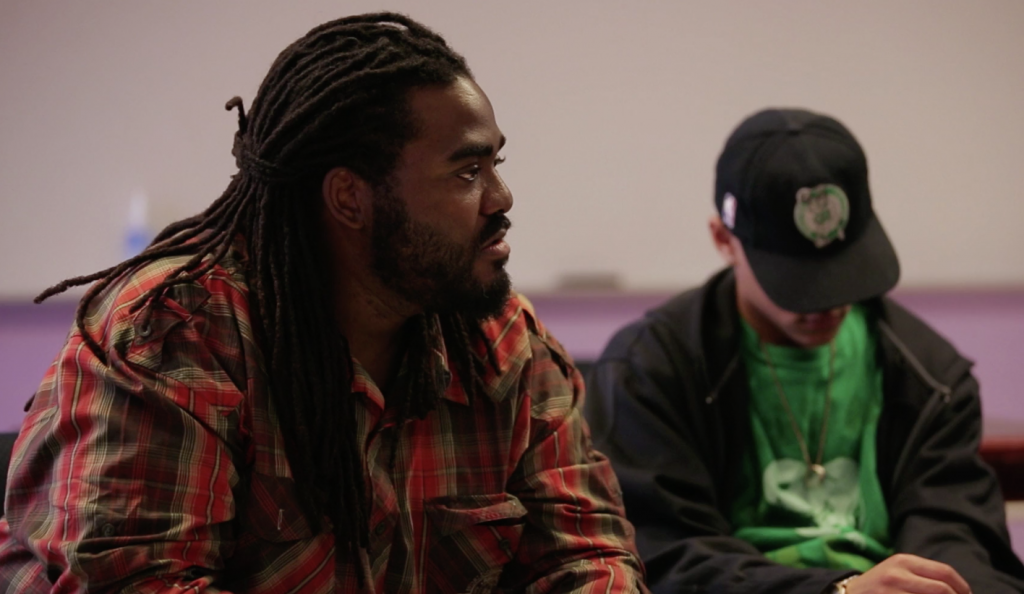Teacher Ashanti Branch created an after school program which was started because he noticed a trend of smart middle school boys failing his math class. The boys responded as most do in this particular school in a very rough part of Oakland, “You don’t get any respect walking around with a big heavy backpack, that’s not cool.” In an effort to get these young men to become more successful students, learn to express their emotions, and figure out healthier ways to “be cool,” Mr. Branch performed the following exercise:
Mr. Branch: “I want you to take one of these masks [a piece of paper with the outline of a mask on 1 side, and blank space on the other] and on this mask you’re gonna draw what represents you. On the front of that mask draw what you put up every day when you walk into school that you want other people to see. Then, on the back of that mask, I want you to write what’s inside you that you don’t want others to see. Like, what’s behind the mask? Now, I want you to take your mask and ball it up. Throw that ball across the room at one of your classmates. Pick-up the piece of paper that was thrown at you, and let’s have someone read what’s on that paper.”
As the 10 boys sitting in the circle start reading what’s on the front of their classmates masks there is a common theme:
Funny
Caring
Happy
Smile
Friendly
Fun
Mr. Branch: “Now, I want you guys to start reading what’s written on the back of the mask that’s in your hands.”
Again, a common theme emerged. This time, very different types of emotions.
Sadness
Fear
Anger
Pain
Scared
Mr. Branch: “Why do you think we hold back our pain?”
One of the student responds, “Because you gotta keep your poker face on, you can’t let people know what you got.”
Mr. Branch responds: “How hard is that to walk around every day with that poker face on? This isn’t just an activity on paper, this is about real stuff that we are dealing with as young men that we hide behind because we don’t feel safe. Almost 90% of you have pain and anger on the back of that paper, that’s not a coincidence. That is real. We are only 8 here, there are hundreds out there with same experience but they don’t have any one to talk to. They are holding back, because they don’t have someone asking what’s up with you? How can I support you? I want each of you to be able to say what you need to say. Because if we are ever going to dig down to the deepness of our pain, young men, if are ever going to dig down to the anger that we are holding behind so we don’t just end up like another man in jail because we exploded on the wrong person for the wrong thing. We have got to have a safe place to deal with it. That’s brotherhood.”
You can learn more about how Mr. Ashanti Branch and many others are impacting the lives of young men for the better by watching the documentary The Mask You Live In on Netflix.

